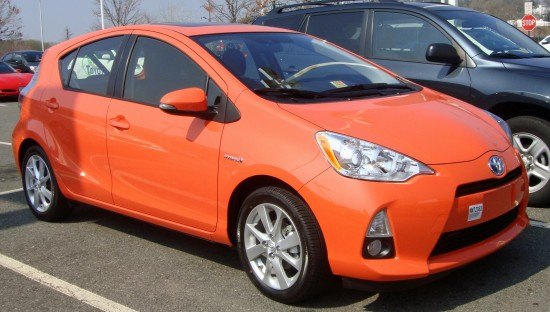Most Hybrid Car Buyers Don't Purchase Another One
A study by Polk found that the majority of hybrid car buyers don’t end up purchasing another one – when Toyota Prius buyers are excluded, the number of repeat hybrid customers is as low as 22 percent.
In 2011, only 35 percent of hybrid customers bought another one. Hybrids seem to enable strong brand loyalty (Pirus and Honda hybrid insight owners had loyalty rates of 60 and 52 percent respectively) but don’t necessarily keep buying hybrid cars. 41 percent of Prius owners bought either another Prius or a hybrid from another OEM.
The biggest challenge appears to be, ironically, the advancement of fuel efficient gasoline-only cars. Consumers are finding it hard to justify the price premium when many small and mid-size cars are achieving strong fuel economy numbers without a price premium that could take years to pay off. Hybrid market share was 2.4 percent in 2011, with a peak of 2.9 percent in 2008.
More by Derek Kreindler


































Comments
Join the conversation
This is just re-posting and hyping a sensationalist headline, something that seems to be getting more common on this site. How about some thoughtful analysis to reveal the "truth", as many of the posts here have done? Since I took the (link)bait, I'll post my opinion: I think this reveals the problem with using the term "hybrid" as a vehicle class rather than simply a power train alternative. Do people that buy four cylinder engines by another car with a four cylinder? Do people that purchase diesels purchase another diesel? Same questions, but because we've been encouraged to think of "hybrids" as a class of vehicle, this poll seems more important.
Although I see the sensationalism in the headline, I think it is true that outside of the Prius, the repurchase rate on hybrids could foreseeably be on the decline. I think the reason is simple -- the number of high fuel economy car options has exploded over the past couple of years. You no longer need to go all-in on a hybrid to get decent fuel economy. And I think more car buyers are perfectly fine with a car that can manage 30+ highway MPG. Also, a lot of the hybrids that got shoehorned into an existing platform proved less than satisfying to drive, and the fuel mileage improvement wasn't all that much better with a lot of those first generation models. With the new generation of direct injection engines, turbos, stop/start systems, cylinder deactivation, and other gas saving tweaks on conventional ICE cars, owners trading in their first generation hybrids have a lot options more to choose from, without the driveability compromises that often accompany hybrids or the higher sticker prices. With those first generation hybrids, a lot of owners now have the end of the battery warranty in sight. So, the potential replacement cost of the battery is no longer seen as some distant hypothetical. Also, many owners have also seen dropoffs in their fuel economy (a friend of mine recently sold his Civic Hybrid, partly because the fuel economy had declined by about 10% compared to when the car was new).
This study is insanely flawed since most hybrids haven't been out very long, so anybody buying another car is likely buying an additional vehicle and not a replacement. The only hybrid that's out long enough to have meaningful replacement numbers would be the Prius and it's retention rate is about double the other hybrids. Even those sales probably include people who own both a Prius and say, a Tundra. Really stupid to assume that just because you own a hybrid your next car purchase is a replacement for it, you buy the hybrid to commute and you can buy a sports car or truck or whatever too.
From someone who actually drove Prius and decided not to renew. Problem is, hybrids fall into two types: a) econobox and b) sofa-on-wheels (Lexus). It's like buying cheapest crappiest seat on an airplane for $20 less and then, in a middle of 8 hours flight wishing you'd spend $100 more and get more comfort. I got tired of crappy seats, cloth, road noise and got back into luxury car. Looked at Lexus GS but hybrid had really small trunk, handling was well, Lexus style and no AWD. Since I wouldn't touch RX with a 10 foot pole, out of hybrids I went. If one can and wants some creature comfort and decent driving experience, hybrids are pretty much out currently. I think this is also partially why Volt does not sell. Too expensive for regular car, not enough interior quality and amenities for a luxury car.